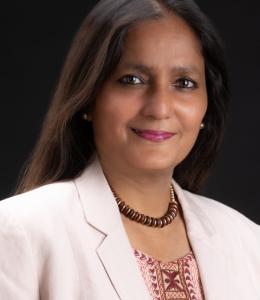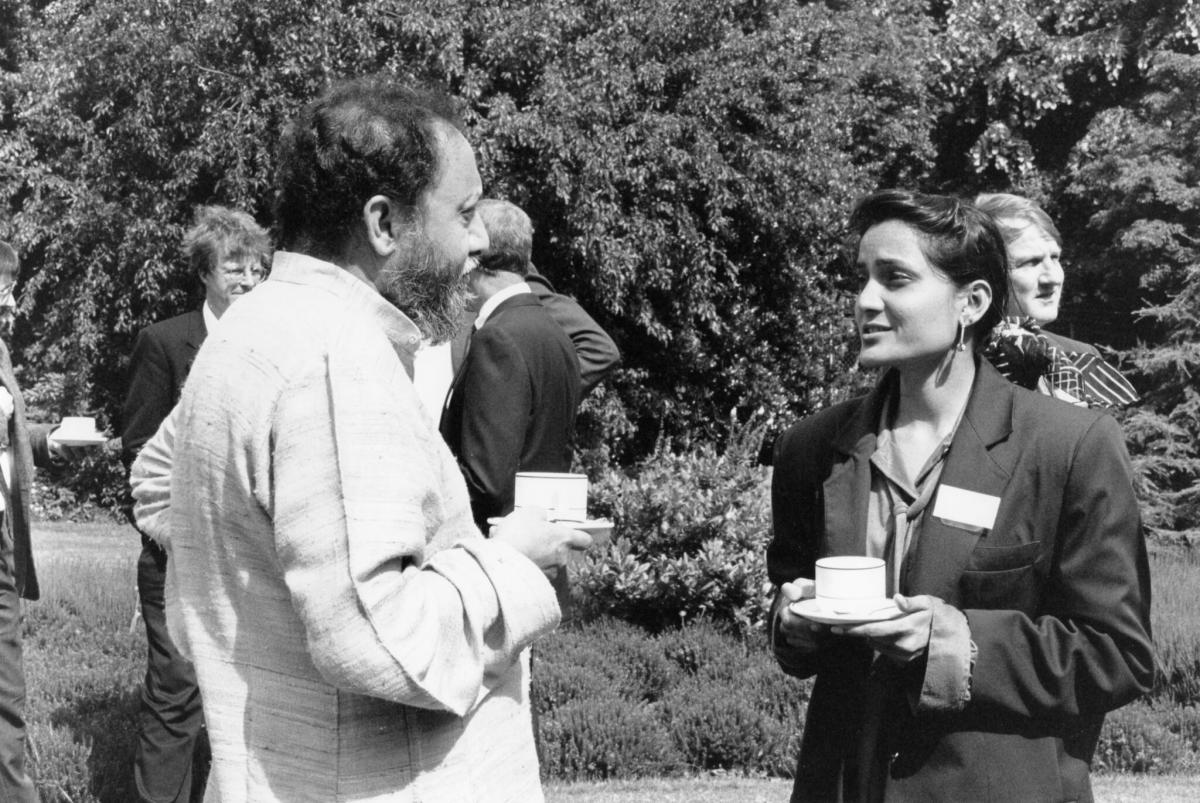
Poonam Bala received her doctorate (PhD) degree on a Commonwealth Scholarship (1983-87) from the University of Edinburgh, postdoctoral research at the Universities of London and Edinburgh, University College London, an MPhil from Jawaharlal Nehru University, and graduate/undergraduate degrees from the University of Delhi. She has held Visiting Professorships at Jawaharlal Nehru University and institutions in Germany, South Africa, India and Greece.
She lectured at Harvard University, is former faculty at the University of Delhi and Professor at Amity University, and has taught and lectured in various universities in Canada, the USA, Australia, South Africa and Germany. Currently a Visiting Scholar at Cleveland State University and Nominated Fellow at UNISA (South Africa), she has lectured at the University of Queensland, and delivered the Distinguished Dr Upendranath Brahmachari Endowment Lecture at the University of Burdwan. She has authored and edited several books and articles on medicine and its historical trajectory under colonialism including Imperialism and Medicine in Bengal: A Socio-Historical Perspective (Sage), Medicine and Colonialism: Historical Perspectives in India and South Africa (Routledge), and Learning from Empire (Cambridge Scholars), amongst several others. Her doctoral research at the University of Edinburgh, published as her first monograph, Imperialism and Medicine in Bengal, was a pathbreaking study on medicine under colonial India which opened up a new area of research.
She was President of the First International Conference on Ancient Greek and Indian Medicine (Greece), and a Founding Member of the Asian Indian Heritage Project (Ohio). She has been and is on the Editorial Board of the Ancient Science of Life and on the Advisory Board of Global Research Forum on Diaspora and Transnationalism, on the Editorial/Reviewers’ Board of the Athens Journal of Health, and Academic Member of Athens Journal of History.
Her other professional activities include an interview on the WCPN/FM National radio channel (USA), on The Social and Political background of Kashmir problems in India. She spoke at a debate session at the City Club of Cleveland on The Kashmir Dilemma in the Indian sub-continent as well as on the Relevance of Education System in Contemporary India at the Delhi TV Channel (Delhi Doordarshan) Education Programme, New Delhi. Last, but not least, she is also the Founding Member of the Asian Indian Heritage Project (Ohio).
She featured in the South Asian Alumni of the Year, University of Edinburgh (2019), details of which can be found at: https://www.ed.ac.uk/alumni/services/profiles/graduation/1980s/poonam-bala
What research were you doing during your time at IASH?
In my doctoral research at the University of Edinburgh, I focused on the trajectory and encounters of Indian and western medicine under colonial rule which I published as a book, Imperialism and Medicine in Bengal: A Socio-historical Perspective (1991, Sage), which became one of the first comprehensive region-specific studies on the interactions between Indian and western medicine under the British empire. During the course of this research, I came across references to several Scottish doctors who were employed by the East India Company and who played a major role in formulating the health and medical policies as well as administrative ideas in the British Empire, and India was no exception. These ideas formed the basis of further research as I continued my post-doctoral research at IASH.
During my time at IASH, thus, I focused on the contributions of Scottish doctors and how their knowledge, perseverance and meticulous efforts paved the way for medical and scientific progress not only in India but also in other former colonies of the British empire.

How has your research developed in recent years?
While India was very much the focus of my earlier research then, I later developed this into looking at medical encounters and colonial empires in a transnational perspective by looking at, for instance, colonial India and South Africa. Facilitated by what I call, various ‘paradigms of defence,’ (ref: Bala, Poonam. Contesting Colonial Authority: Medicine and Indigenous Responses in Nineteenth- and Twentieth-Century India) medical encounters and engagements presented some interesting revelations. Ideas of the creation of new knowledge and its transfers between different colonies of the British empire built up what was called ‘colonial medicine,’ a subject of debate over the past several years. While the colonial and post-colonial literature has dominated perceptions of colonial empire and their rootedness in India, it has given way to the development of medical knowledge in the former colonies which also shaped medical practice in the centre.
Moving beyond India and South Africa, the focus of my research shifted to deploying race, gender and medicine to better understand the colonial engagements and indigenous peoples and their knowledge in Sub Saharan Africa (ed. Poonam Bala, Medicine and Colonial Engagements in India and Sub-Saharan Africa) And in recent years, I have looked at the modalities of medical knowledge, its circulation and implementation through colonial institutions and their role in combating diseases of public health importance under the Portuguese empire. Transfer of medical knowledge through interactional global networks, of contestation and accommodation, I argue, led to a flow of ideas and knowledge within these networks.
Do you think scholarly discussions of Empire and colonialism have changed since you were at IASH?
Yes, surely there has been a lot of change in the scholarly discussions of Empire and colonialism since I was at IASH. Earlier emphasis on Daniel Headrick’s ‘tools of empire’ thesis which dominated almost all scholarly debates in this subject became less a focus of these debates.. Defining colonial projects in terms of exploitation and ‘subjugation’ of the ‘colonised peoples and their social environments reigned supreme in these earlier studies. No longer were these seen as instruments of exploitation for they entailed new understandings of the emergence of various colonial infrastructures. Indigenous institutions have now been understood and studied as sites which witness various interactional processes of contestation and appropriation of colonial knowledge (ed. Poonam Bala, Biomedicine as a Contested Site: Some Revelations in Imperial Contexts).
In my own research, I introduced various perspectives of contestation, accommodation and appropriation of colonial knowledge which would eventually (re) define medicine and medical practice under colonialism. Earlier discussions on diffusionism are now replaced by more interactional and mobile engagements in post-colonial legacies.
In recent years, newer understandings of power, coercion and hegemony have dominated post-colonial discourse. Both consent and coercion and concomitant resistance to hegemony as part of a long and contested process, have now given way to new perspectives on counter-productive and counter-hegemonic resistance of subaltern groups, especially in the context of South Asia. As a result, the postcolonial state has often witnessed counter-hegemonic resistance dealing with social and cultural modernity, at the same time handling issues of neo-liberalism.
